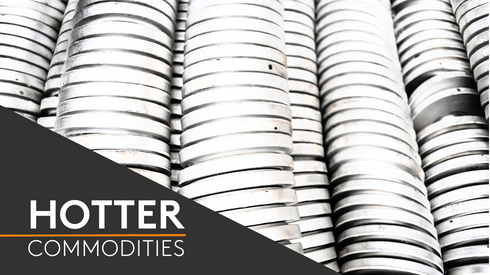In an exclusive interview with Fastmarkets on Tuesday June 13, Harings said: “We need to decarbonize [copper production processes] everywhere [so that it is not] just a strange competition [about] which [brand of] copper is greener. We need to [start this] across the [entire] value chain.”
He highlighted the global nature of climate change and pointed out that, without collective action, individual companies reducing their own carbon footprints would not be enough to resolve the issues related to decarbonization.
The industry has put a stronger focus on low-carbon copper in recent years with various companies across the industry improving their production and procurement procedures to reduce their carbon footprints.
Industry sources have told Fastmarkets that one of the challenges for the reduction of carbon footprints by the copper industry is the complexity and length of the supply chain. Some sources said that increased use of recycled material could increase the transparency and carbon efficiency of the market.
There is a significant increase in demand for copper overall, which cannot be [met] by recycling [alone]
“There is a significant increase in demand for copper overall, which cannot be [met] by recycling [alone]. Recycling can play a role, but we need to have more primary copper being extracted and refined,” Harings said. “We at Aurubis are arguing for responsible copper [production] and [for the decarbonization of] the whole supply chain. We are working [intently] with our mining partners to see what we can achieve jointly.”
Aurubis has signed Memoranda of Understanding with copper producers Codelco and Anglo American in the past year with the intention of collaborating on sustainability in the copper value chain.
Harings said that the nuance and complexity of the copper industry, and each metal market, meant that regulation and definitions relating to decarbonization would be best defined internally with reference to the International Copper Association (ICA).
“Each industry, [such as] the copper industry, is very specific and very different,” Harings said. “My view is that the regulators should stay at a [level of oversight] and not micromanage everything. [They should] leave the specific industries the obligation and [the] freedom to define within their associations the best [way] for the industry to meet the [specified] purpose.
“When I talk specifically for Aurubis, it is coming from us because we [believe that] we can do business differently. We [believe that] we can decarbonize,” Harings said.
“It [would be] very difficult to measure progress and to identify what the main areas of action [should] be if we don’t have transparency,” he added. “As a CEO, I need the [basis of facts] so I can see what we are dealing with. So we need transparency. [Even] without demands [imposed by] regulators, or banks, we have worked on this anyway.”
Market sources have told Fastmarkets in recent weeks that “low-carbon” copper could soon be sold at a premium. Multiple producer sources have told Fastmarkets that they were already receiving premiums for such material.
But Harings said: “I don’t think there will be a sustainable premium for green products. The whole industry is going to move [toward sustainable production] and, as we move as a whole company, we will not rely on or make a business case for green copper premiums. [The effects of green production] will be indirect because we will get more business and more demand, and not this extra premium somewhere in the chain.”
With the world moving to electrification and green energy sources, there is an increased focus on metals and their supply chains. For example, Fastmarkets reported earlier this week that Switzerland-based electrical equipment manufacturer ABB has announced a commitment to procure low-carbon copper wire from Dahrén.
Harings said that copper’s green credentials should not be limited to its production but should extend to the metal’s extensive use in transition technologies.
“We are seeing increasing demand for copper overall [globally] due to decarbonization [activities],” he said. “Copper is one of the metals that enable decarbonization by [making] electrification [possible].”





